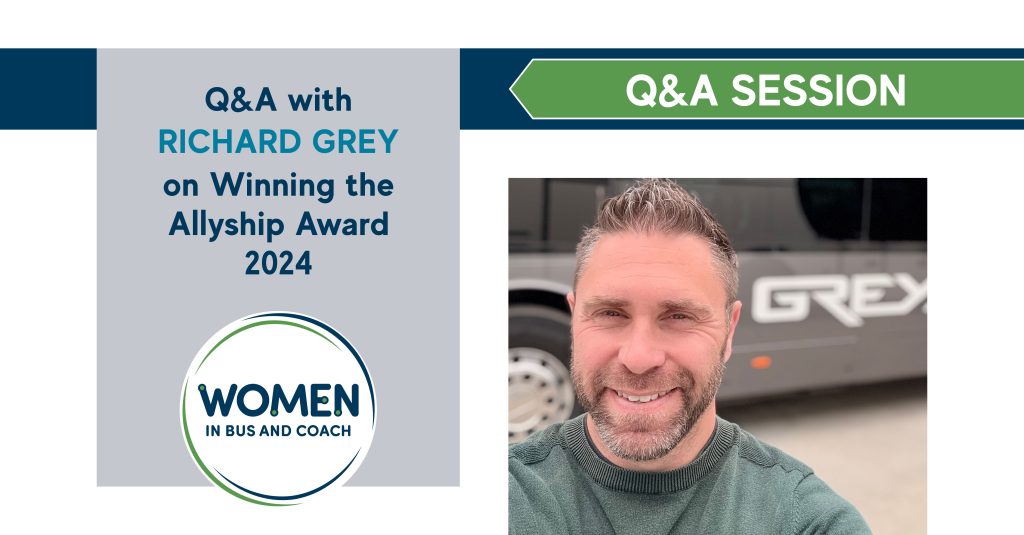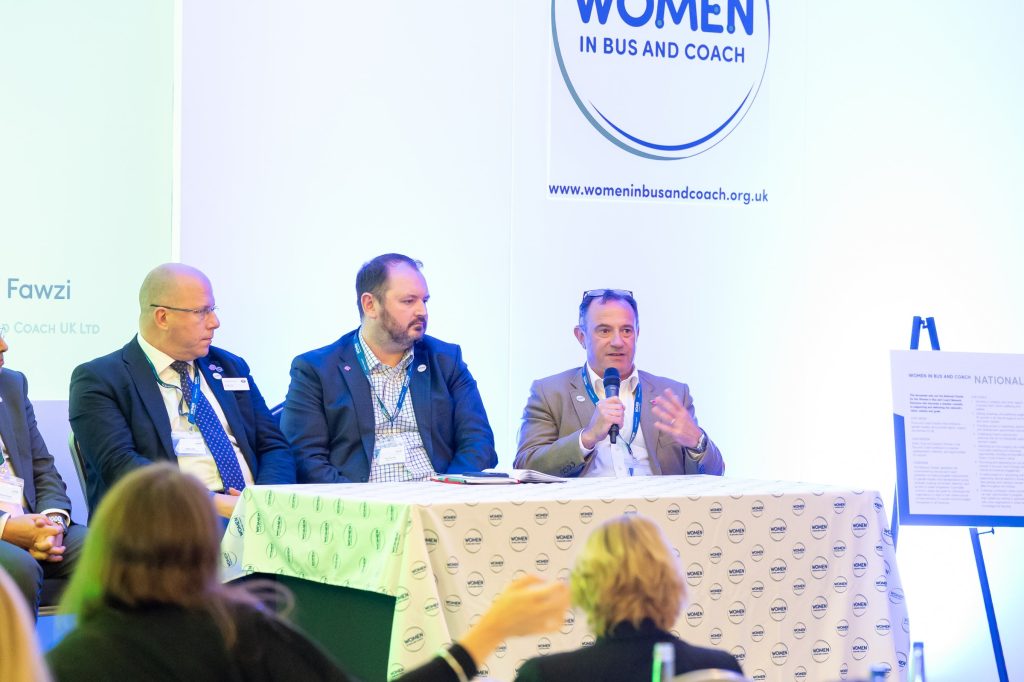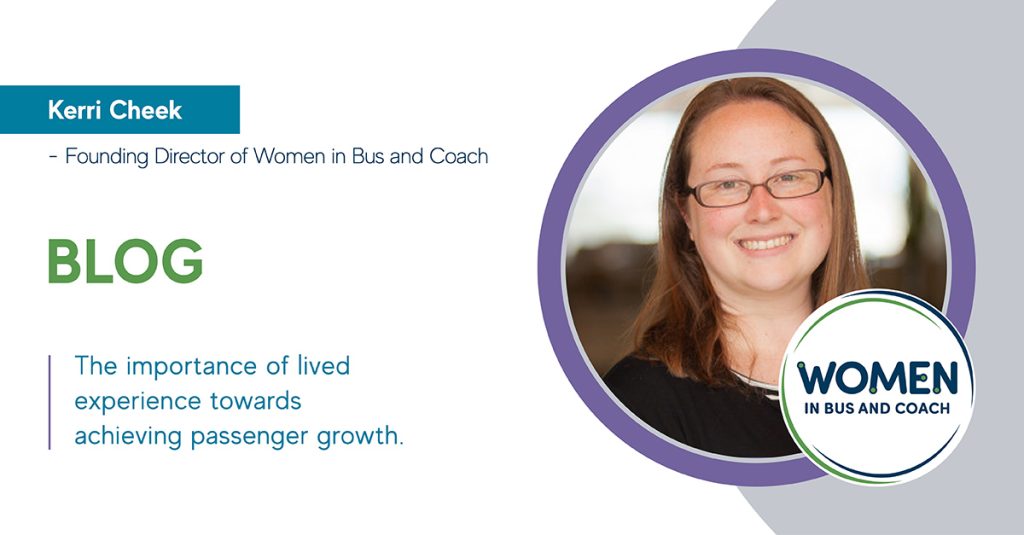As we count down to the 2025 Women in Bus and Coach (WiBC) Awards, we caught up with one of last year’s inspiring winners.
Richard Grey, Managing Director of Greys Travel Solutions, was awarded the Peter, Lord Hendy of Richmond Hill Allyship Award, sponsored by the Go-Ahead Group, in recognition of his ongoing commitment to creating a more inclusive workplace.
In this Q&A, Richard reflects on what the award meant to him, how allyship has shaped his leadership, and why building inclusive cultures matters more than ever in the coach industry.
What has the award meant to you?
Winning the Allyship Award from WiBC was truly one of the proudest moments of my career. It wasn’t just a personal honour; it represented a shared commitment to building a more inclusive and supportive workplace. It reminded me that even small acts of allyship, when done consistently and genuinely, can have a big impact.
How did it feel to win? What did it mean to be recognised?
I was honestly overwhelmed when I heard my name. To be recognised by WiBC, a group that champions women and inclusivity in such a powerful way, was deeply humbling. It felt like validation that being an ally isn’t about grand gestures, but about showing up, listening, and using your position to support women in career growth and goals.
What’s changed for you or your organisation since?
Since winning, there’s been a noticeable shift. More people have approached me to talk about inclusion, to ask how they can be better allies too. It’s helped turn allyship from a nice idea into a real, ongoing commitment across teams.
Why is allyship important in our industry?
Allyship is essential in the bus and coach industry. We serve diverse communities every day, and our teams should reflect that. True allyship helps break down barriers, whether that’s challenging unconscious bias or creating safe spaces for different voices to be heard. It’s about recognising that everyone benefits when everyone feels they belong.
What does good allyship look like in practice?
Good allyship is active, not passive. It looks like listening more than speaking. It’s stepping aside to let someone else be heard. It’s calling out exclusion, even when it’s uncomfortable. It’s checking your own biases, educating yourself, and making space for others to grow and shine. And most importantly, it’s something you do consistently, not just when it’s convenient.
Did you learn anything from the award process?
Going through the award process was eye-opening. I learned just how many amazing individuals and organisations are doing brilliant work, often behind the scenes. It made me realise allyship isn’t limited to one role or level, everyone can play a part. It also reinforced how powerful it is when we come together as a community of like-minded individuals to support and uplift one another, especially in the coach industry which, unfortunately, has been male dominated for too long.
Anything that stood out from being part of the nominations, judging, or Summit?
The Summit was great, hearing stories from across the country, the passion, the progress, the challenges – it was inspiring and motivating. What stood out most was the sense of unity. No matter our backgrounds, everyone there shared a common goal: to make this industry more equitable and welcoming.
Do you have a message for this year’s nominees or finalists?
To all this year’s nominees and finalists: Just being nominated means someone saw the difference you’re making, and that’s powerful. Keep going, keep supporting, and know that your actions are shaping the future of our industry. You’re not just making change – you are the change. And we’re all better for it.
Richard’s journey shows the lasting impact of allyship in action. As we look ahead to the 2025 WiBC Awards, we’re excited to celebrate more of the people and organisations who are helping to shape a more inclusive future for the bus, coach and community transport sector.


